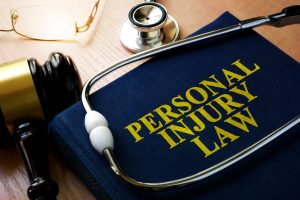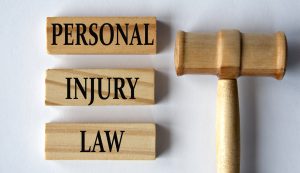When do patients or survived family members have a viable malpractice claim?
There is no easy answer as to when or in what circumstances a patient or their family members may have a viable malpractice claim. It is important to always bear in mind that doctors or other health care practitioners are not guarantors of a perfect, or even a good outcome. Bad outcomes can and do happen despite proper care. It is a common mistake and perhaps only human to think that because the patient died or sustained an injury or outcome that was not as expected, that someone must have made a mistake. One does not follow from the other. Rather, the question must be asked and answered as to whether the health care practitioner failed to meet a reasonable standard of care for someone of like education, training, and experience, and if so, whether it was this failure that led to the harm complained of. It is also important to know that the conduct of the health care practitioner cannot be judged in hindsight, but rather must be judged fairly and based only on what the health care practitioner knew or ought to have known at the time.
Cases involving alleged medical negligence are generally won and lost on expert evidence. It is therefore critical that at the earliest stage possible a full medical legal investigation is completed, keeping the above concepts in mind. In all but the most obvious of cases, we tell our clients that we cannot advise them as to whether they have a viable claim for malpractice until we have ordered and reviewed all of the relevant medical records and had them reviewed by outside, neutral experts in the appropriate medical fields to comment on whether the standard of care was met or missed and whether any purported breaches in the standard of care were causative of the harm. It is important to bear in mind the cost and complexity involved in both investigating and prosecuting these cases as these factors play an obvious role in determining the viability of any claim. Where the patient has made a full recovery or has been left with only minor irritation or injury, it may not make any economic or rational sense to proceed with a claim in negligence, even if liability could be established. In that regard, it is also important to keep in mind that our law only compensates for what did happen as a result of an act of negligence, not what could have happened. We often get calls from people complaining that their doctor made a terrible mistake and that if the problem had not been caught by them or someone else, they would have died or sustained serious injury. While this is of course concerning, it is not necessarily compensable at law. In these situations, it may well be the best course of action to make a complaint to the appropriate regulatory college in the hopes of helping ensure that it does not happen again, rather than pursuing a claim in negligence.
Cases involving alleged medical negligence are generally won and lost on expert evidence.
How do you try to determine the above conclusion, to ensure they have a claim strong enough to fight?
As noted above, we approach the determination of viability through a detailed and comprehensive medical legal investigation. The first step is getting the whole story through careful interview of the patient, potentially family members and anyone else who may have detailed knowledge of the events at issue. The next step is obtaining and carefully reviewing all of the relevant medical records. This includes not only the patient chart from the health care practitioner or hospital at issue, but possibly pre-existing records as well. It is also important to order the entire record and to know what is and is not included. I say this because simply ordering the hospital record will not result in receiving any imaging studies such as MRIs or CT scans. These must be separately ordered from the hospital or its imaging department. Similarly, some records including fetal heart strips may be stored separately and sometimes off site and may need to be separately ordered. Once all relevant records are ordered and obtained, we then conduct a detailed review of the records and start to put together a detailed chronology of the care. We also index and brief the records so that they are in a workable order for use both by our office and the experts we engage. Once fully briefed, we then provide the records to the appropriate expert or experts for their review and comment. In choosing experts, it is important to make sure you are comparing apples to apples. In other words, that the expert is at one with experience, training, and expertise as the person on whose care they are commenting. Once the expert has completed their review, we then meet with them either by telephone or preferably in person to go through their opinion. This step is perhaps the most essential in the process. It is fundamental that we gain as full an understanding as possible about the relevant medical concepts in order to be in a position to put the expert’s opinions in context. It is equally important that we have this opportunity to ask the expert specific questions about each aspect of the care involved in order to truly test whether the standard of care was met or missed and if so, how. It is also of paramount importance that the issue of causation be fully investigated with the same care and attention as the standard of care issues. In that regard, it must always be borne in mind that our law does not compensate for loss of chance, but only where it can be established that, on a balance of probabilities the harm would have been avoided had the standard of care been met. Sometimes the same expert can opine on both standard of care and causation, but many times that is not the case. This needs to be carefully considered and is sometimes overlooked. Just as careful thought needs to be given to what expert is qualified to comment on the standard of care, equal thought needs to be given to the causation expert or experts.
It is also of paramount importance that the issue of causation be fully investigated with the same care and attention as the standard of care issues.
Can you still claim damages even though a consent form was signed?
The short answer is yes. A consent form does not excuse the health care practitioner from his or her obligation to meet a reasonable standard of care in the performance of the surgery or other duty. The consent form provides evidence as to whether consent was obtained and whether that consent was informed in the sense that material risks were disclosed and discussed.
Some patients may trust that their doctor tried all they can; how can patients determine whether their doctor has been negligent towards them?
Most patients do trust their doctor, and so they should. The vast majority of doctors are kind and compassionate professionals who strive every day to act in their patients’ best interests. However, even the most caring and expert physician can make a mistake. The question to be asked when harm does occur is whether it resulted from a breach in the standard of care. A careful and rigorous evaluation of that issue based on the steps set about above is, at least in our experience, the best means to determine that answer.
A consent form does not excuse the health care practitioner from his or her obligation to meet a reasonable standard of care in the performance of the surgery or other duty.
In light of damages, what are the options for clients in terms of types of damages?
Like any personal injury claim, damages are generally broken down into four categories: general damages for pain and suffering; care costs; loss of income or competitive advantage; and, Family Law Act damages for loss of care, guidance and companionship. It is also important to always keep in mind that in a medical negligence claim, the Ministry of Health has a subrogated claim for the cost of insured health care services which were incurred due to the act of negligence and the Ontario Health Insurance Plan must be put on notice. A detailed discussion of each of these heads of damages is probably a topic best left for another time, but the question of damages starts with an understanding of causation and a careful evaluation of all of the harm caused by the wrongful act. That said, it is of vital importance to then separate the analysis of causation from the analysis of damages. In some cases, the evidence may establish that even with proper care, there was a chance that the harm would still have occurred. It is easy to fall into the trap that in this scenario, the damages should be reduced by that same percentage. This is not the correct approach. Once it is established that the wrongful act caused the harm on a balance of probabilities, causation is established as a fact and the injured patient is entitled to his or her full damages.
Duncan Embury
Partner
Info@neinstein.com
www.neinstein.com
Duncan is a Partner and head of the Medical Malpractice group at Neinstein Personal Injury Lawyers. He primarily acts on behalf of plaintiffs on cases involving all areas of medical negligence including obstetrical negligence and surgical negligence. He also acts for plaintiffs on all types of catastrophic personal injury claims including claims for institutional negligence, occupier’s liability, motor vehicle accidents and product liability matters. Duncan also handles complex multi-jurisdictional cases to assist Ontario residents in recovering damages where the injuries occurred in a foreign jurisdiction and was counsel on Van Breda v. Club Resorts, the leading Canadian case on jurisdiction. In addition to a full trial and appeal practice in these areas, Duncan also provides co-counsel assistance to other lawyers in handling complex medical negligence cases at both trial and appeal.




















